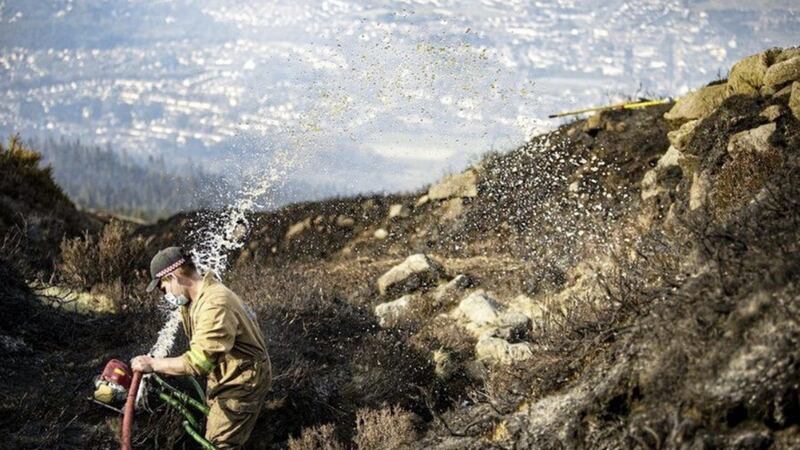WHILE the sun has been shining over the past week, our climate is not hot enough to cause mountain heather and gorse to spontaneously combust.
The weekend fire in the Mourne Mountains was the result of human activity – accidental, carelessness or deliberate.
On Friday evening I was able to see from Downpatrick, 13 miles away from Newcastle, the orange glow that was spreading along the slopes of Thomas Mountain and Slieve Donard.
Ironically, the day before I had been attending a course on guiding walkers and one of the topics was the impact of human activity on our wild places.
Given the circumstances we have all been living under since Covid restrictions came into force, outdoors activities have become more popular than ever.
I have often been able to trek through the Mournes without meeting another person, but that has changed.
Car parks at popular entry points into the mountains are now overflowing before 8am and hordes of people are surging up along the Glen River from Donard Car Park.
The age of walkers is also much younger and the total lack of preparedness by many for mountain terrain.
There is no doubt that outdoor activity is something to be encouraged. However, while we are fortunate to have mountains, coasts, forests and wild places to wander through, those resources must also be protected.
This is not to shift the blame onto a new generation of outdoor enthusiasts – devastating fires in the Mournes are nothing new.
And, while the damage caused this weekend was dramatically visual, it is a landscape that has been facing more subtle challenges for many decades.
Over-grazing throughout the Mournes, the use of pesticides and other air-borne pollutants, non-native invasive species, climate change and tens of thousands of hikers have all impacted on its delicately balanced ecosystems.
There has been a long-running argument for the Mournes to be made into a national park to provide additional protection and the debate should now be reopened on that. However, equally devastating forest fires in Co Kerry at the weekend took place in the Irish government-controlled Killarney National Park, so state management is not a solution in itself.
While the intensity and damage caused by the Mourne fires was truly shocking and the immediate focus will be on finding out how it started, the longer-term agenda must be a call to action in terms of educating those who use the outdoors for pleasure but also those stakeholders who manage and work in places with fragile ecosystems.
Tony Bailie is a nature and environmental columnist for The Irish News







